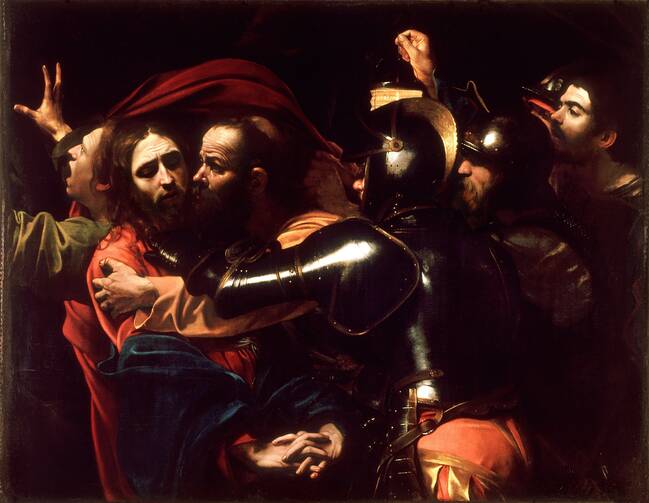A time of virus brings back such basic questions. What matters to us? Who matters to us? What is going to happen to us? We would also like to know when and how this contagion will come to an end. Though, these days, who would be so bold as to proffer an answer to the question “Why did this happen?” Some would say that questions of meaning and value do not have real answers. One thing is certain: We cannot help but to pose them.
The Gospels are not simply records of what happened to Jesus. They are proclamations of who he is, who he revealed himself to be by what happened to him. Each evangelist faithfully fashions his own features; each makes the story his own. For St. John, even the most commonplace facts are revelatory: where something happened, what time of day.
It is the fourth Gospel that gives us “The Agony in the Garden.” The other evangelists simply set the scene outside Jerusalem. Why does St. John call the spot across the Kedron Valley from Jerusalem a garden? Because the contagion began in a garden.
Does contagion overwhelm even the power of God? No. The contagion that matters most the Son of God will receive into his own flesh.
Our world came forth from God as good, whole and fruitful. It was our collective decision in Adam that introduced death, that made barren the garden of God’s gracious favor. Sin created distance between ourselves and our origin, bringing darkness onto the land and into our minds. This is not legend. This is primordial history, writ into our being before we had the power to scribble.
What began in a garden must come to an end in a garden. This time, the God-made-man, in the depth of his humanity, says yes to the will of the Father. What we lost in distrust and disobedience we regain in faith and surrender.
Christ is ready and resolved. “For this I was born and for this I came into the world” (Jn 18:37). In the dark shadows, those who seek his death cannot even find him. He must identify himself to them, claim his own cross. Jesus does so with only two words, the sacred words by which the God of the burning bush beswore himself to Moses. Christ steps into the light of ghastly torches, looks into the eyes of his twisted slayers and says, “I AM.”
Is the virus a result of sin? Of course it is, but God does not does hurl chastisement. Sin seeds its own punishment. You must understand that we now experience nature and our natural end in a way God never intended. We made the garden barren. Like Judas, we walked out into the night.
Does contagion overwhelm even the power of God? No. The contagion that matters most the Son of God will receive into his own flesh. Perhaps now we can understand his death and resurrection with the aid of a new metaphor. Christ draws sin and death into himself. He does this so that God’s vaccine can be given to us.
Readings: Isaiah 52: 13-53: 12 Hebrews 4: 14-16, 5: 7-9 John 18: 1-19: 42










